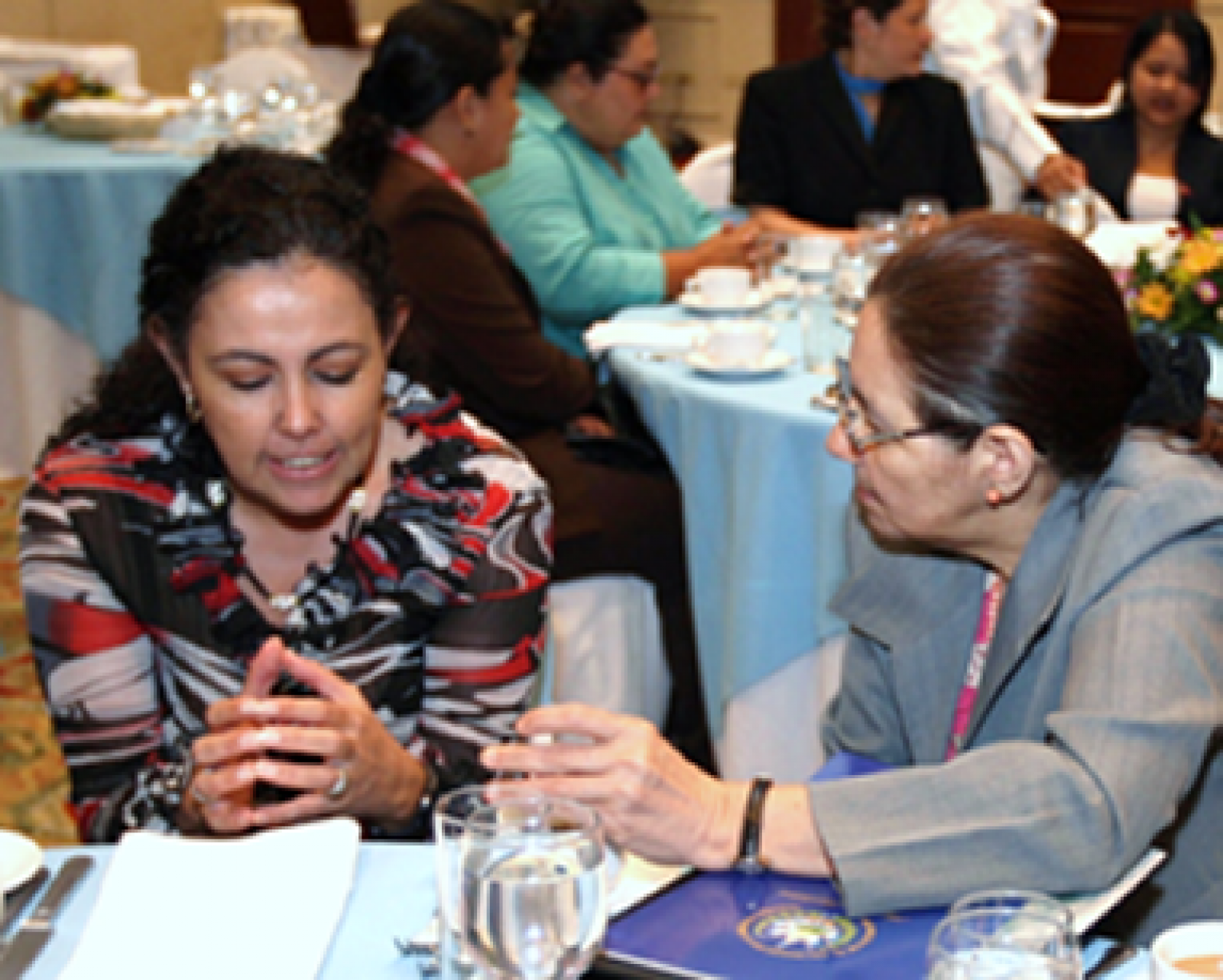
SHARE
Chronically underrepresented in the political life of El Salvador, women from a cross section of national political parties came together recently in San Salvador to lay out a National Legislative Assembly program to move the nation toward more gender equity.
Thirty-five current and former women legislators attended the forum and set as their priorities promoting a national budget with a gender focus, advancing a law that guarantees equal opportunity for women and men, and a law against femicide, the killing of a woman based on gender, a crime that is not currently recognized and often goes unpunished.
The event was co-hosted by NDI, the United Nations Development Program (UNDP), the United Nations Fund for Women Development (UNIFEM), the United Nations Population Fund (UNFPA) and the Spanish Agency of International Cooperation for Development (Agencia Española de Cooperación Internacional para el Desarrollo, AECID) as a follow up to two Latin American Women Legislators' Regional Forums held in Mexico and Spain earlier this year.
The San Salvador forum began with remarks by National Assembly President Ciro Zepeda from the National Conciliation Party (Partido de Conciliación Nacional, PCN), who commended the participants' willingness to set aside political differences and discuss gender issues, and pledged to support initiatives developed during the gathering. Group sessions were facilitated by Mexican gender and leadership expert Mónica Zárate of the Simone de Beauvoir Leadership Institute (Instituto de Liderazgo Simone de Beauvoir, ILSB).
A panel entitled "Political Participation of Salvadoran Women" focused on the importance of women's political representation and the effects of underrepresentation. The panel's host, Margarita Escobar of the Republican Nationalistic Alliance (Alianza Republicana Nacionalista, ARENA), pointed out that while women make up more than 52 percent of the country's population, their legislative participation averages 14 percent.

A second panel provided an overview of the initiatives that the National Assembly has approved in favor of women, including the Family Code, the Law Against Intra Family Violence, the creation of the Salvadoran Institute for Women and the ratification of the Convention on the Elimination of All Forms of Discrimination Against Women (CEDAW). The panel discussed next steps and members' goals for their legislative legacy on women's rights.
During working sessions, women formed multi-party groups to agree on common priorities to promote at the national level. The women defined a common agenda and then discussed strategies that took into account political, financial and social contexts, available resources and citizen engagement.
Meanwhile, Lorena Peña and Sandra Salgado, secretaries of the National Assembly Board of Directors for the Farabundo Martí National Liberation Front (Frente Farabundo Martí para la Liberación Nacional, FMLN) and the Christian Democrat Party (Partido Demócrata Cristiano, PDC) respectively, hope to include funding in the 2010 National Assembly budget for an internal evaluation of the rights of women working in the National Assembly.
Pictured above: FMLN Legislative Caucus Vice-President Norma Guevara and Mexican facilitator Mónica Zárate introduce themselves during the opening session.
Pictured below: ARENA Legislator Milena de Escalón (center), along with two FMLN representatives read the proposals signed by women politicians at an August forum on the "Economic Crisis and its Impact on Women."
Published on October 7, 2009


